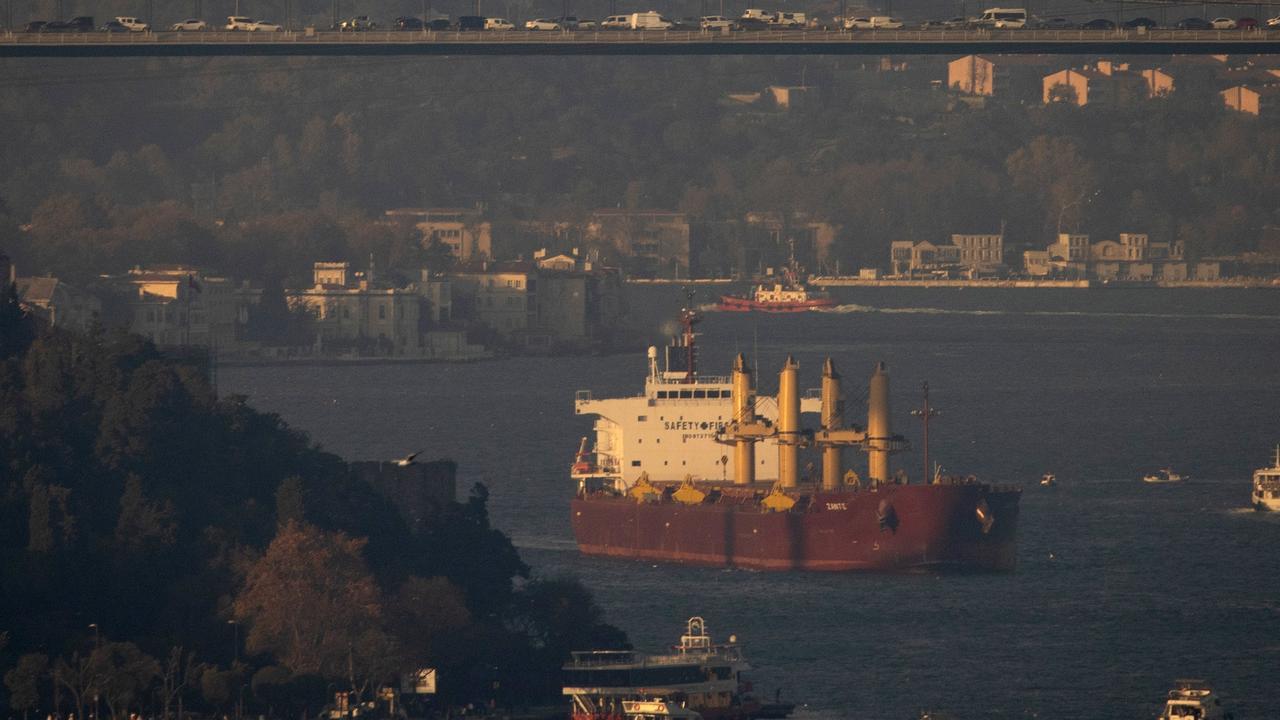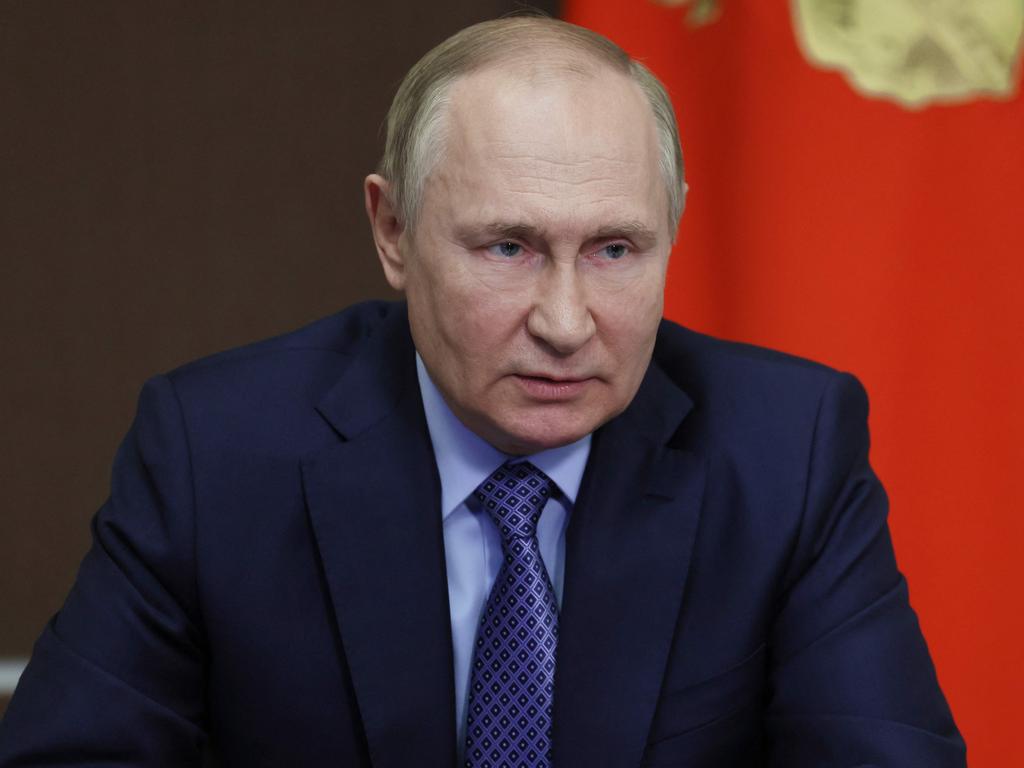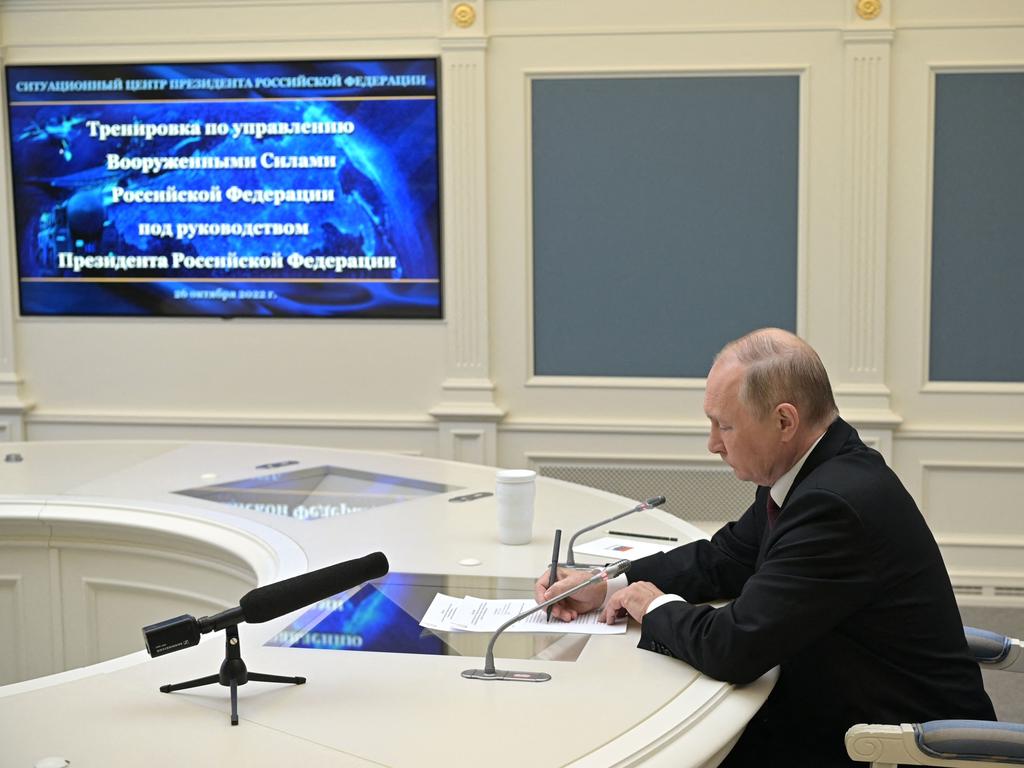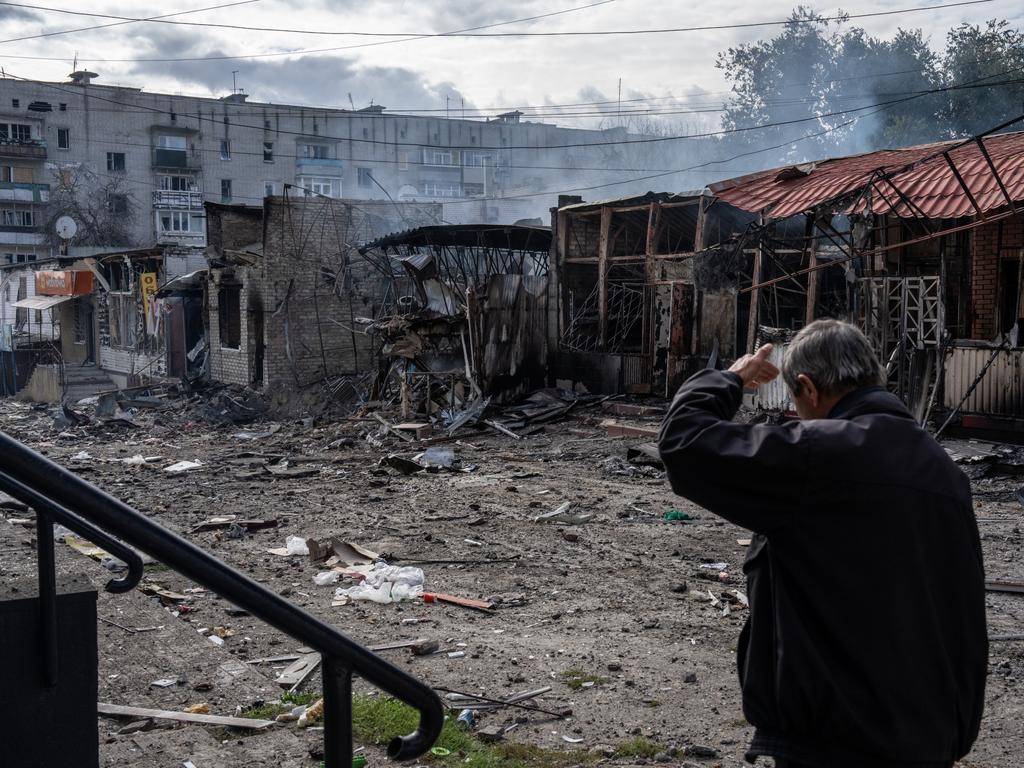‘Fell into a trap’: Vladimir Putin’s humiliating backdown
Vladimir Putin’s latest bluff has been called, as the Kremlin was forced into a drastic backflip on a strategic move against Ukraine.
In a humiliating backdown, the Kremlin has reversed a decision that would have blackmailed the world with hunger.
On Wednesday, Russia has rejoined a deal to allow Ukrainian grain exports through the Black Sea — a move that the but President Vladimir Putin warned Moscow could again pull out of the agreement.
The revival of an arrangement aimed at easing fears of global food insecurity came as Washington said it was “increasingly concerned” Russia could use nuclear weapons in its campaign in Ukraine.
Moscow had said on Saturday that it was temporarily pulling out of the grain deal, with some analysts saying it was proof Putin’s bluff could be called and that the Kremlin had fallen “into a trap”.
Russia accused Ukraine of using a safe shipping corridor established under the agreement to launch a drone assault on its Black Sea fleet.
Russia’s defence ministry said it had now received sufficient guarantees from Kyiv that it would not use the maritime corridor to carry out attacks.

“The Kremlin just fell into a trap itself, from which it did not know how to get out,” wrote Tatiana Stanovaya, the head of the analysis firm R.Politik. “The deal was suspended, but it is unclear how to stop the export of grain. No way. Only by military means, which was not part of their plans.”
UN Secretary-General Antonio Guterres welcomed Russia’s decision to resume participation in the agreement, which was brokered by the United Nations and Turkey in July and allows for joint inspections of ships.
President Volodymyr Zelensky said on Twitter that he had thanked Turkish President Recep Tayyip Erdogan for his role in preserving the grain deal. The Ukrainian leader later hailed its resumption as “a significant diplomatic result for our country and the whole world”.
But Putin said Russia could leave the deal again if Ukraine violates its guarantees, though Moscow would not interfere with any grain deliveries even if it did.
Moscow had warned the route was dangerous for shipments without its participation in the agreement but some deliveries from Ukraine still went ahead on Monday and Tuesday.
High-level Russian military leaders recently discussed when and how they might use tactical nuclear weapons on the battlefield in Ukraine, according to US officials.
Russian President Vladimir Putin did not take part in the discussions, and there was no indication that the Russian military had decided to deploy the weapons, which would sharply escalate the war.
White House national security spokesman John Kirby said he did not have any comment on the details in the report.
But in a statement sent to AFP he said any comments on the use of nuclear weapons by Russia are “deeply concerning,” and said the United States takes them seriously.
At the same time, he said, the US sees “no indications that Russia is making preparations for such use.”
The United States has been warning Moscow for weeks over public comments from top Russian officials that they could use nuclear weapons in Ukraine in certain cases, particularly if they felt there was a threat to Russian territorial integrity.
The most recent threat came from former Russian president and senior security council official Dmitry Medvedev.
Medvedev said on Tuesday that Ukraine’s objective to reclaim all its territories occupied by Russia, which include the Donbas region and Crimea, would be a “threat to the existence of our state.”


That, Medvedev said, would be “a direct reason” to invoke nuclear deterrence. However, early Wednesday Putin’s spokesman Dmitry Peskov said that Western media was “deliberately pumping up the topic of the use of nuclear weapons.”
Moscow does “not have the slightest intention to take part in this,” he said, calling the NYT report “very irresponsible.”
Last month, Putin renewed threats he made when Russia’s invasion in Ukraine began in February.
“If the territorial integrity of our country is threatened, we will certainly use all the means at our disposal to protect Russia and our people,” he said in a televised national address, adding, “I’m not bluffing.”
US President Joe Biden last month said the US’ current nuclear threat is the biggest since 1962.
“We have not faced the prospect of Armageddon since Kennedy and the Cuban missile crisis,” he said at a reception for the Democratic Senatorial Campaign Committee.

However, the White House later clarified it has no indication Russia is imminently preparing to use nuclear weapons.
In September, Biden’s national security advisor said that the United States has warned Russia at “very high levels” of “catastrophic consequences” for using nuclear arms.
EU foreign policy chief Josep Borrell warned on October 13 that Russian forces would be “annihilated” by the West if Putin uses nuclear weapons against Ukraine.
— with AFP



